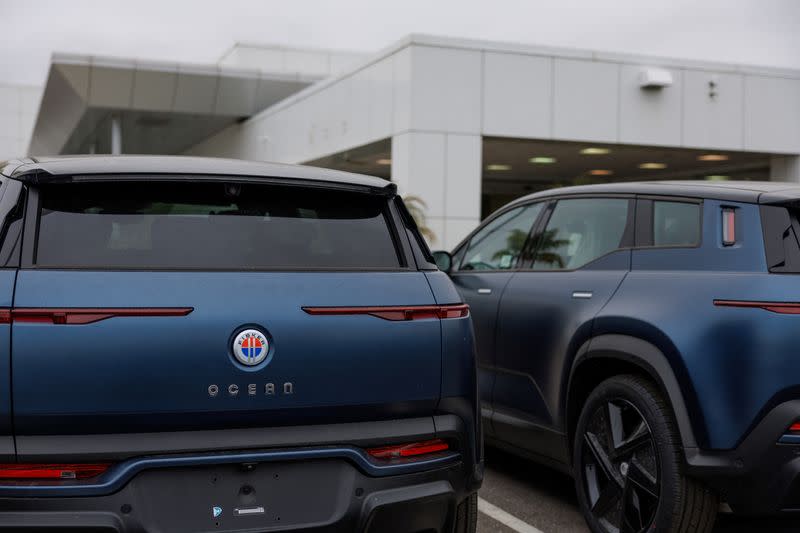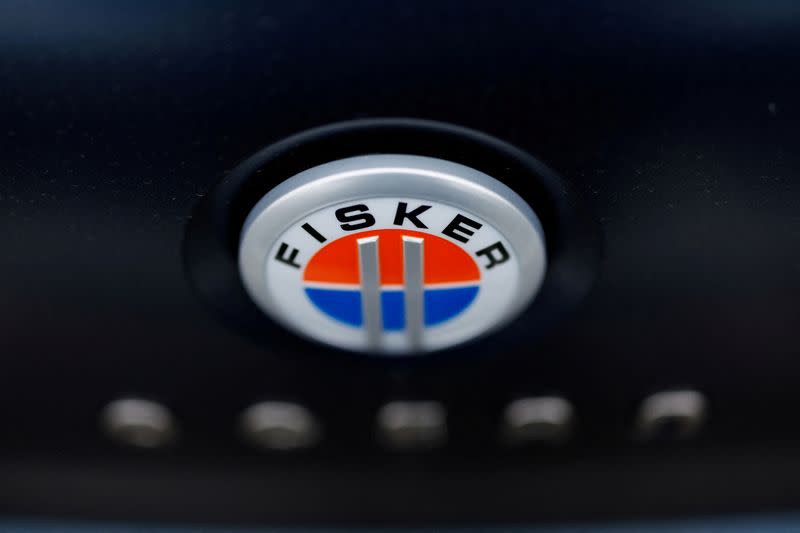Fisker heads toward liquidation as creditors fight over assets
By Dietrich Knauth
NEW YORK (Reuters) - Electric vehicle startup Fisker is headed towards a liquidation, attorneys said in U.S. bankruptcy court on Friday, as two creditor factions previewed a battle over which group will be paid first.
Fisker filed for bankruptcy protection in Delaware on Monday after burning through cash in an attempt to ramp up production of its Ocean SUVs. The company initially said it would seek additional financing and continue "reduced operations," but Fisker's attorney Brian Resnick said at the hearing in Wilmington the company does "not currently anticipate being able to obtain financing."
Resnick told U.S. Bankruptcy Judge Thomas Horan that the company planned to liquidate its assets, and it has reached a tentative deal with a single buyer for all of its 4,300 vehicles.
The California-based company, founded by automotive designer Henrik Fisker, was never profitable, with about $273 million in revenue in 2023 and a net loss of $940 million.
Fisker owes over $850 million to two groups of bondholders, and attorneys for the larger group accused a minority faction led by Heights Capital Management of seizing control of Fisker's debt in November through a "suspect" transaction with Fisker.
At the time, Fisker was late in providing audited financial statements due under its debt agreements, and Heights used that "minor, technical default" to claim all of Fisker's assets as collateral on its bonds, Alex Lees, an attorney for other bondholders, said.
"They basically handed the whole business over to Heights," Lees told Horan. "Fisker has been liquidating outside of this court's supervision, basically for one creditor's sole benefit."
Lees said that Fisker should have filed for bankruptcy in November. His group intends to challenge the November agreement that put Heights at the front of the line for repayment in Fisker's bankruptcy, Lees said.
Heights' attorney Scott Greissman said Lees' claim was "outrageous" and that Heights tried to help Fisker survive.
"There may be a lot of disappointed creditors, but none more than Heights," Greissman said.
Greissman said the expected sale of Fisker's fleet would pay only a "fraction" of Heights' $185 million in debt. That would leave little hope of repayment for other creditors.
Linda Richenderfer, an attorney for the U.S. Department of Justice's bankruptcy watchdog, said Heights appeared to hold all the leverage, making it likely that Fisker's bankruptcy would convert to a straightforward Chapter 7 liquidation once the vehicle fleet is sold.
Heights "is getting everything it wants," Richenderfer said. "It has no reason next week to agree to anything more."
Fisker's fate was sealed in March, when it failed to reach a partnership with a large vehicle manufacturer – which Reuters has reported to be Nissan. Before that failed, Fisker paused production and laid off staff to conserve cash, Resnick said.
The hyper-competitive EV market has seen several companies, including Proterra, Lordstown and Electric Last Mile Solutions, file for bankruptcy in the past two years as they grappled with weakening demand, fundraising hurdles and operational challenges from global supply chain issues.
(Reporting by Dietrich Knauth, Editing by Alexia Garamfalvi and Cynthia Osterman)


